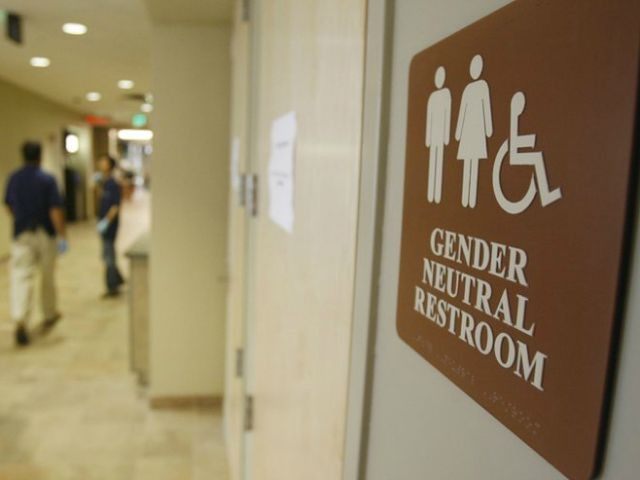Schools should consider introducing gender-neutral toilets to make transgender pupils feel more included, a teaching union representative has said. This morning her union voted in favour of schools doing more to explore trans issues with pupils, including celebrating “trans role models”.
Julia Neal, chairwoman of the Association of Teachers and Lecturers’ (ALT) equality and diversity committee introduced the motion at the union’s annual conference this morning, after calling for schools to do more to introduce non-gender specific facilities. She believes that many aspects of school life, including the toilet facilities, are gender specific – and that that needs to change.
Speaking to the London Evening Standard yesterday, history teacher Ms Neal insisted that all teachers need training on how to provide “non-gender-specific facilities”, saying: “It’s about senior management teams and governing bodies understanding that there are a lot of facilities in schools that are separated — changing rooms and toilets and uniforms are very gender-specific.
“If there is gender fluidity they need to understand the importance of gender-neutral facilities. And they need to understand how pupils want to be referred.
“It’s a delicate area. Teachers are not confident, which is not a criticism.”
And she said that teachers need to do more to encourage pupils who are questioning their gender, saying: “Teachers could be trained into how they can best use inclusive language. The terms which are used for gender identity are quite complicated.
“They need training on how to provide non-gender-specific facilities and how to help students going through transition.”
Her ideas have gained support from trans teachers, such as Dan (not his real name), who told Huffington Post UK that when a pupil at his school faced a gender identity crisis “staff panicked. There was a knee-jerk reaction to treat it as a safe-guarding issue, which is completely inappropriate.”
He complained that “lesbian, gay, bisexual and transgender are all classed as inappropriate words by school firewalls,” which prevented him from directing students to certain websites on the issue. The school agreed to unblock those sites.
However, Ms Neal’s calls for gender-neutral facilities doesn’t appear to have much support among the public. A poll conducted by the North West Evening Mail on their website found just 18 per cent of their readers wanted to see gender-neutral toilets introduced in schools, against 82 per cent who opposed the idea.
One reader told the paper that gender-neutral toilets had already been introduced at her niece’s school – with unintended consequences. “Most of the girls [won’t] go in on their own especially if there was boys in,” she said, adding: “Oh and lads and lasses would go in cubicles together and do things they shouldn’t be.”
Somewhat ironically, ALT general secretary Dr Mary Bousted has used her conference speech to call the education watchdog Ofsted a “threat” whose shadow “looms” over teachers and school staff. Yet Ofsted has repeatedly come in for criticism for tacitly promoting the trans-agenda in schools.
In 2012 it lavished praise on nine schools who were encouraging children as young as four to break down gender stereotypes. Boys were encouraged to wear tutus and ribbons in their hair, while girls were encouraged to play football.
And last year, under the guise of promoting British Values, inspectors were found to be asking primary children inappropriate questions about lesbian sex and transgenderism.
Paul Nuttall, deputy leader of UKIP said “I find that absolutely appalling.
“Instilling so called ‘British values’ involving democracy, liberty and tolerance is vitally important but primary school children should be concentrating on learning the 3 Rs and not having details about lesbian sex and gender issues forced upon them.”
The vote to promote transgenderism comes less than a week after another major teaching union voted in favour of replacing British values with the promotion of ‘international values’. Teachers in the National Union of Teachers insisted that the promotion of British values such tolerance, democracy and inclusion promotes “cultural supremacism”.
One teacher said he was uncomfortable teaching British values when so many pupils in his Coventry classroom came from families whose heritage lay within former British colonies.

COMMENTS
Please let us know if you're having issues with commenting.